Broccoli is one of the most nutritious vegetables available. Aside from its nutrient content, it's very easy to add broccoli to your diet, as it is crunchy and has a mild taste. However, you might need substitutes, as many groceries do not have them in the store.
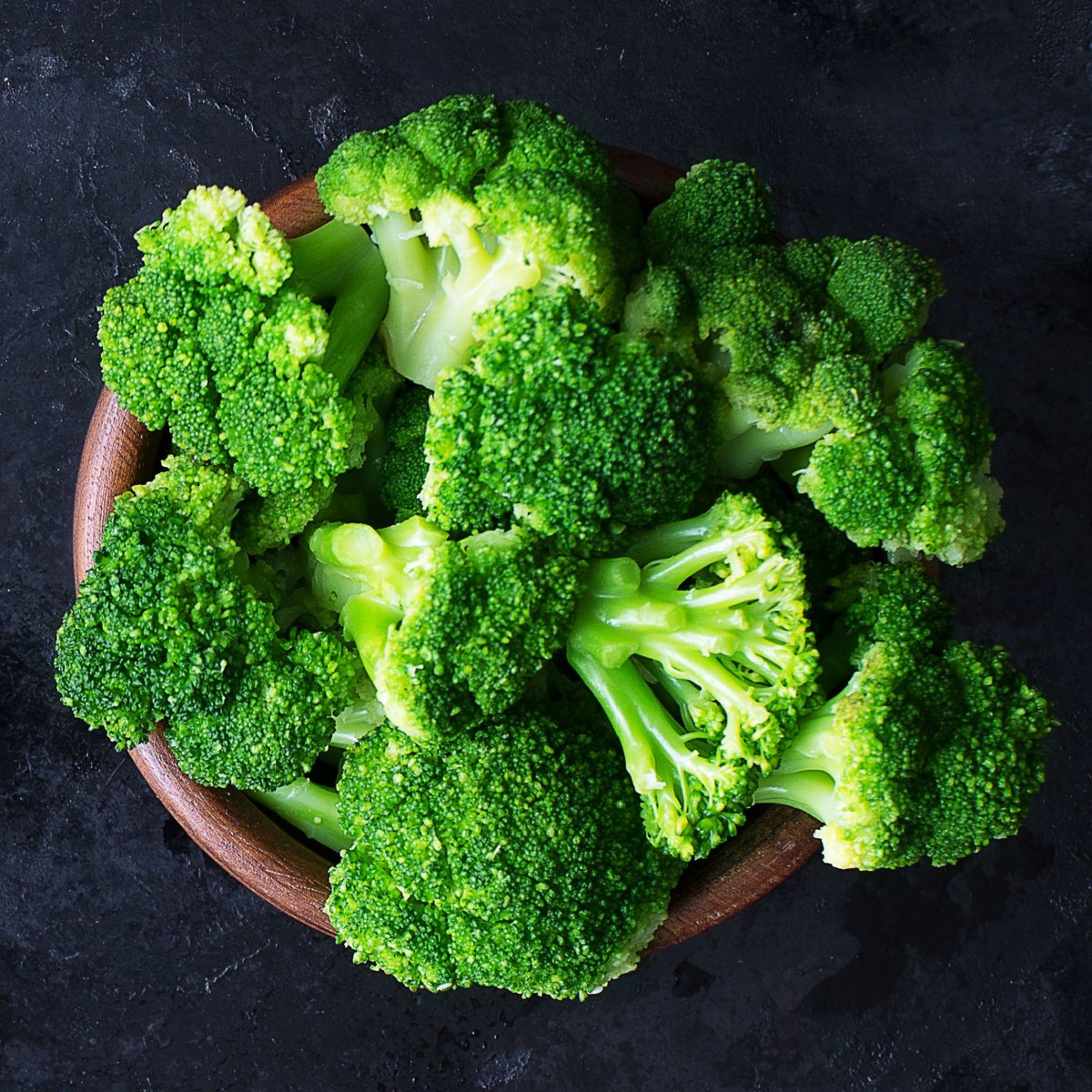
The best broccoli substitutes are cauliflower, kale, cabbage, and broccolini. Other substitutes include Gai Lan, Brussels sprouts, turnip greens, rapini, green beans, asparagus, baby spinach leaves, mustard greens, and collard greens.
Read on as I discuss the taste and nutrients of each broccoli substitute.
Table of Contents
13 Best Broccoli Substitutes
1. Cauliflower
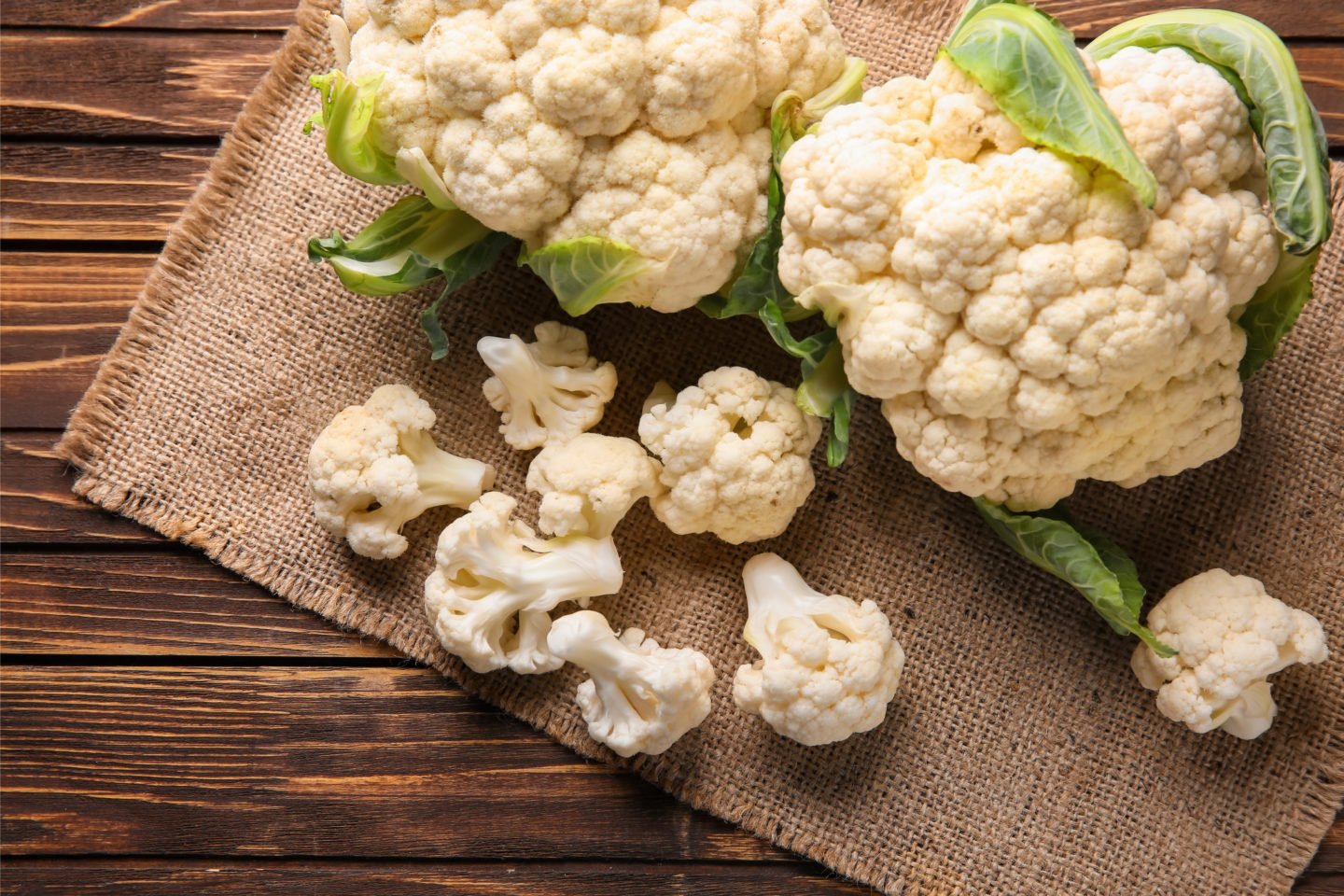
Cauliflower is a nutritious and versatile vegetable. It has a mild, slightly sweet taste and a firm texture, similar to broccoli, and is rich in vitamins and minerals, such as vitamin C, K, folate, and potassium. It is also high in fiber and low in calories.
Cauliflower is an excellent substitute for broccoli. It has a similar texture, but its milder flavor makes it a more versatile option for dishes.
You can use it for your side dish, main dish, soups, and salads. It is also a great addition to stir-fries, curries, and casseroles. Like broccoli, you can prepare cauliflower in different ways, such as roasted, mashed, steamed, raw, or even as cauliflower rice.
2. Kale
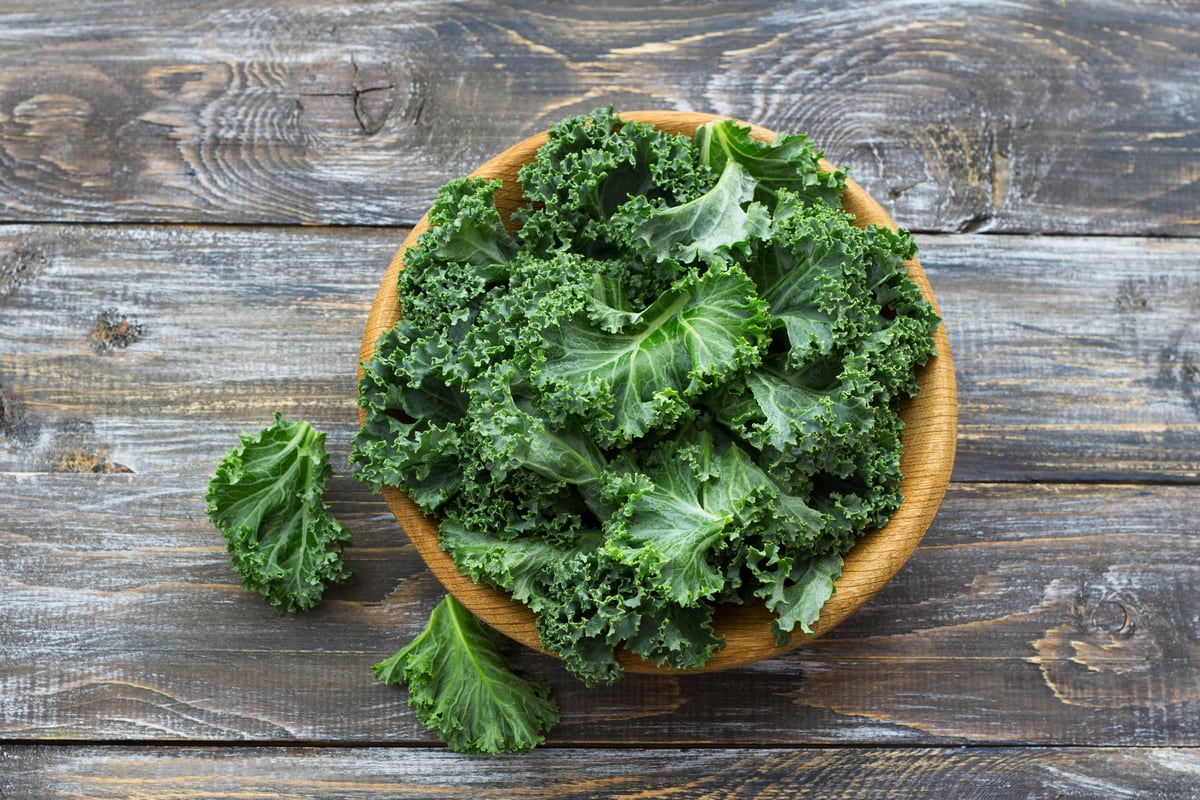
Kale is a leafy green vegetable that makes a suitable replacement if you wish to have more greens in your dish. It has a rich, earthy flavor and a crisp, crunchy texture.
Kale is a suitable broccoli substitute and has many advantages over its cruciferous cousin. Aside from having high amounts of vitamins A, C, and K, kale is a better fiber, iron, and calcium source and is rich in antioxidants and anti-inflammatory properties.
3. Cabbage
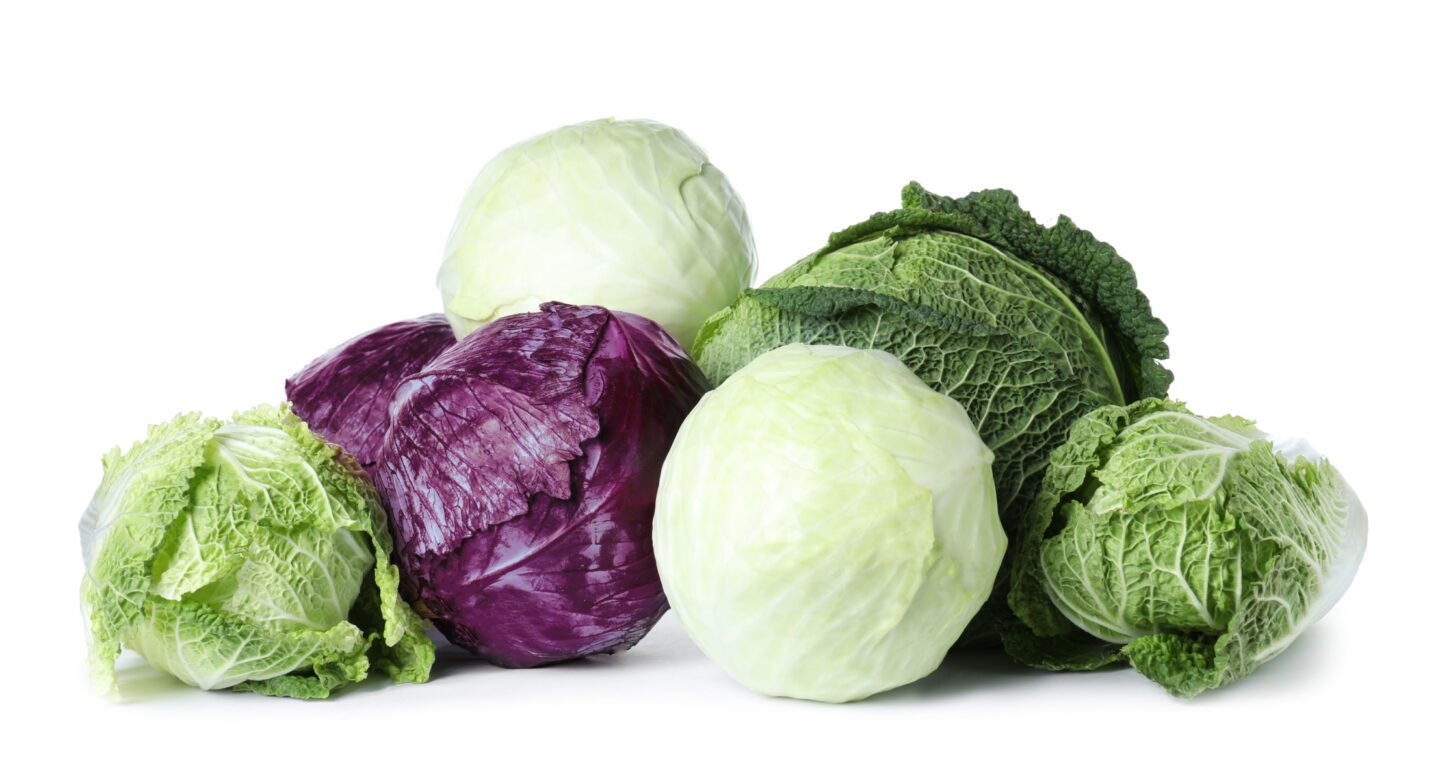
Cabbage is a vegetable that has a mild, earthy flavor with a crunchy texture and a slightly sweet taste.
Like broccoli, cabbage is low in calories but high in fiber, vitamins, and minerals. It is rich in vitamin C, vitamin K, folate, and antioxidants, which can help protect against certain diseases.
Cabbage can make an excellent substitute for broccoli in many recipes. It has a similar texture and flavor but is less overpowering than broccoli, which makes it more versatile. You can use cabbage in any recipe, including soups, salads, casseroles, coleslaw, stir-fries, sandwiches, and wraps.
You can also use Chinese cabbage if you have it in your fridge.
4. Broccolini
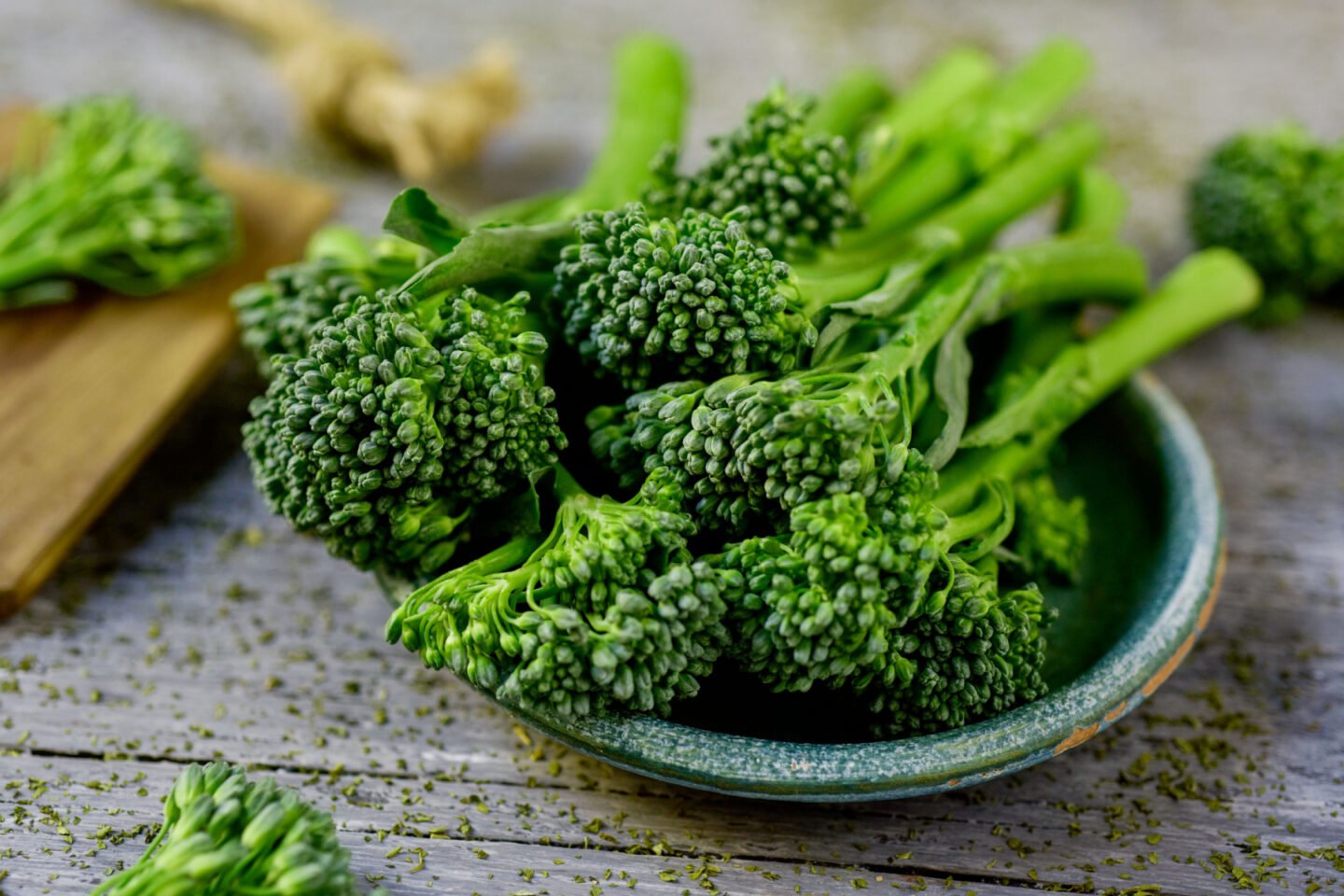
Broccolini is a hybrid vegetable, a cross between broccoli and Chinese kale. It has a sweeter and more delicate taste than regular broccoli and is a "gourmet" vegetable. Its tender stalks and small florets make it a favorite in salads and as a side dish.
Broccolini is a great source of vitamins A, C, and K, as well as iron, calcium, and fiber. Broccolini, unlike regular broccoli, tastes best when cooked quickly, either by boiling, steaming, or sautéing.
5. Gai Lan
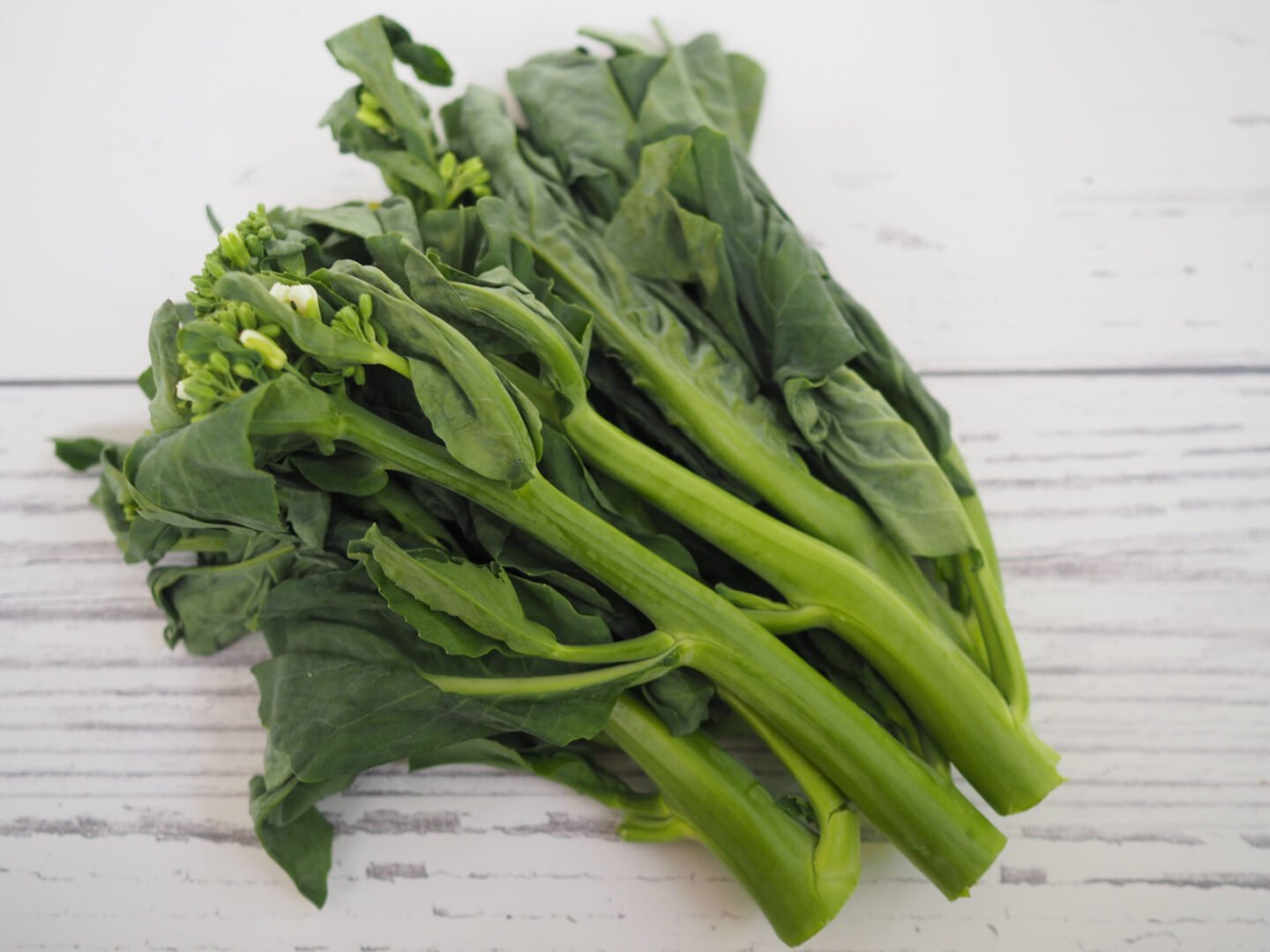
Gai Lan is a cruciferous vegetable that is often used in Chinese cooking. It is also known as Chinese broccoli. It has an earthy, slightly bitter flavor similar to broccoli but more intense.
Unlike broccoli, where you can only eat the florets, the leaves and stems of Gai Lan are also edible.
Nutritionally, Gai Lan is very similar to broccoli. It is a great source of vitamins A and C and minerals like folate, potassium, calcium, iron, magnesium, and dietary fiber.
6. Brussels Sprouts
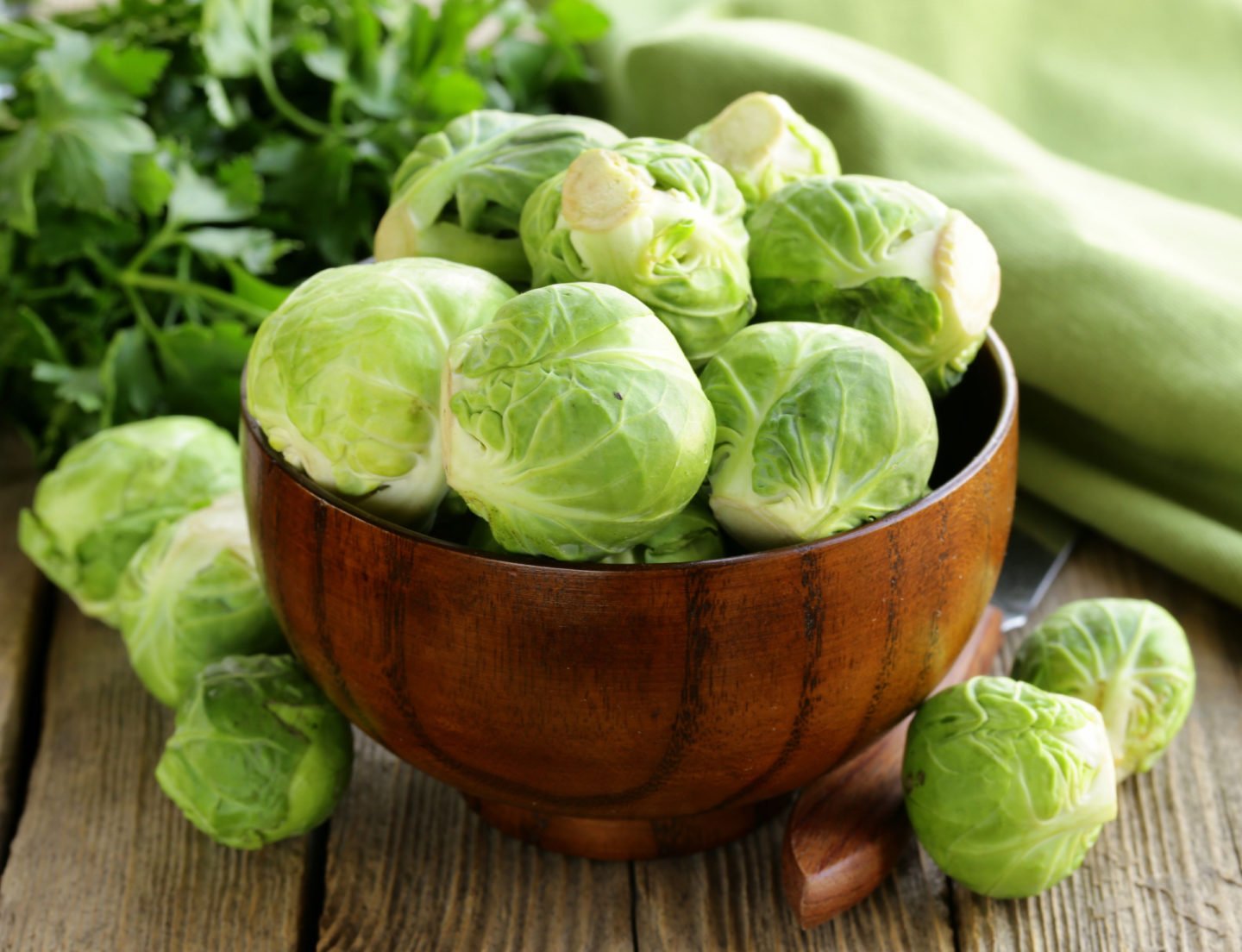
Brussels sprouts are a cruciferous vegetable that is closely related to broccoli. When cooked, they develop a sweet and nutty flavor and are best when roasted, steamed, boiled, or fried.
From a nutritional standpoint, Brussels sprouts are high in vitamins K, C, and B6 and are an excellent dietary fiber and antioxidant source. They also contain a significant amount of potassium, manganese, and magnesium.
7. Turnip Greens
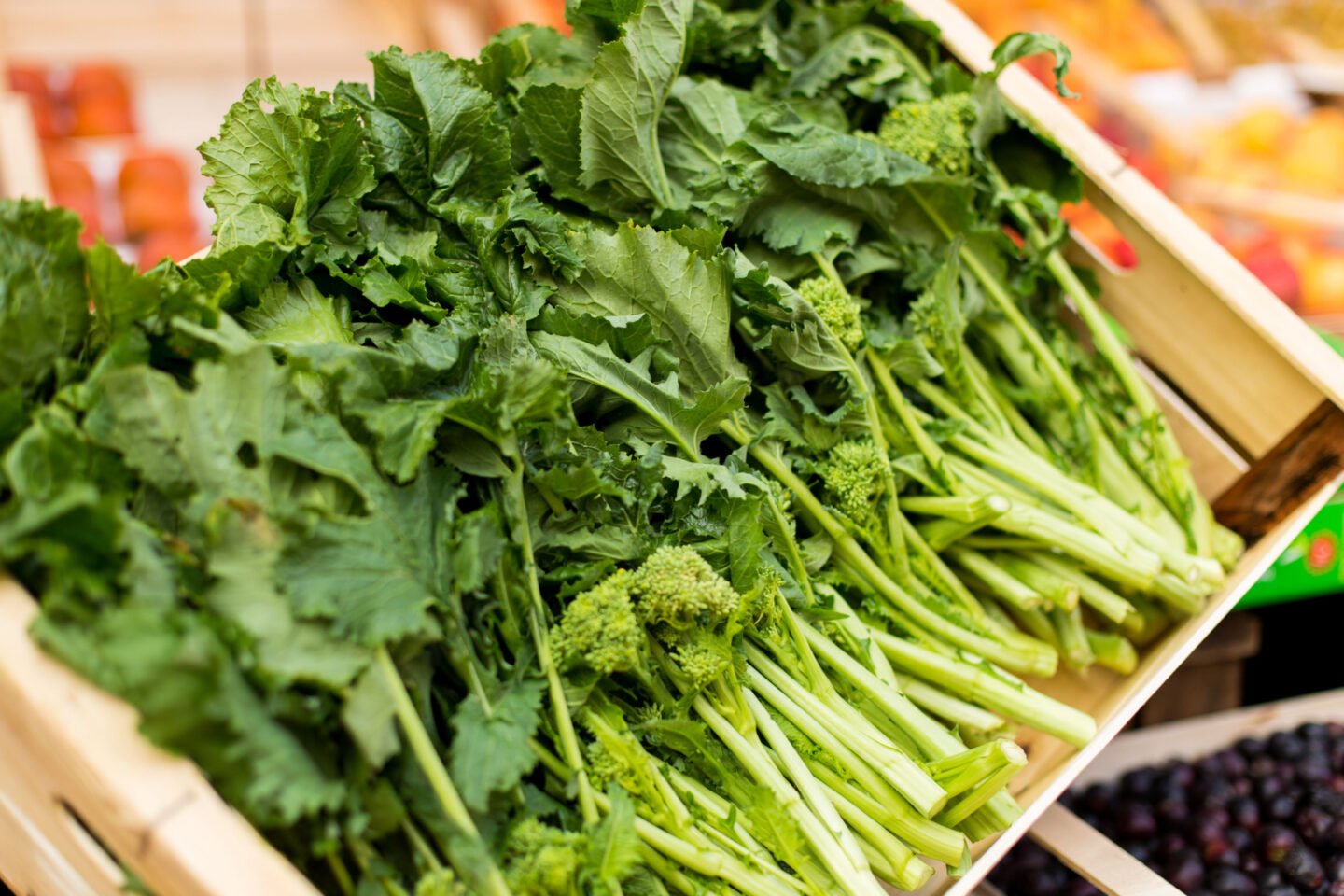
Turnip greens have a unique taste that is slightly bitter yet earthy. The flavor is more robust than broccoli and similar to other dark leafy greens, such as collard greens or kale. If you can tolerate bitter tastes, this is the best substitute.
Nutritionally, turnip greens are an excellent source of vitamin A, vitamin C, and vitamin K. They are also high in dietary fiber, potassium, calcium, and magnesium. The greens also contain some omega-3 fatty acids and phytochemicals.
8. Rapini (Broccoli Rabe)
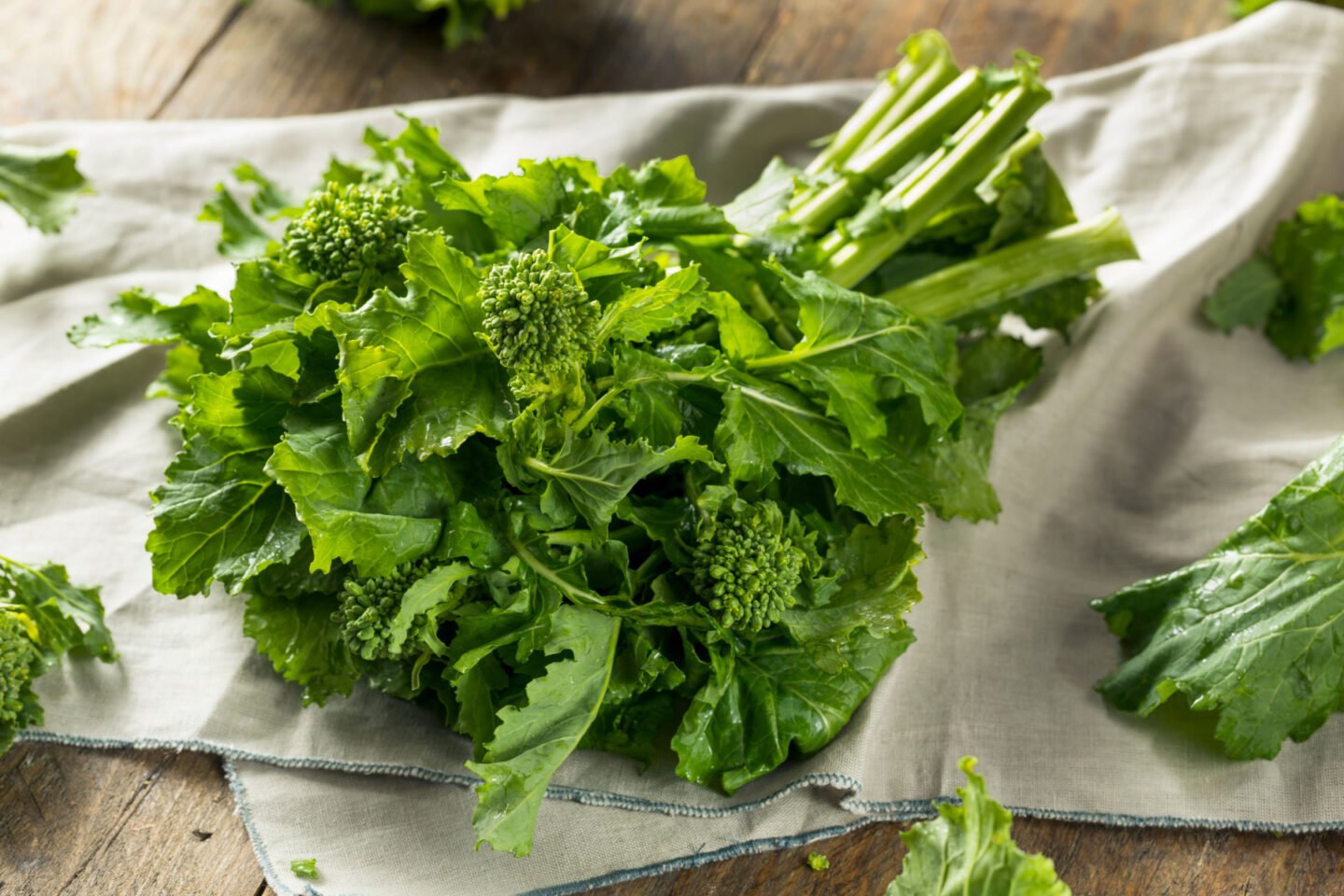
Rapini, also known as broccoli rabe, is a leafy green vegetable that has a slightly bitter taste. It is related to broccoli, but the taste is stronger and the texture is firmer. The vegetable is a good source of fiber, vitamins A, C, and K, and minerals such as iron, calcium, and magnesium.
Rapini is an excellent substitute for broccoli in many dishes but only tolerates short cooking periods. I suggest using broccoli rabe for salads.
9. Green Beans
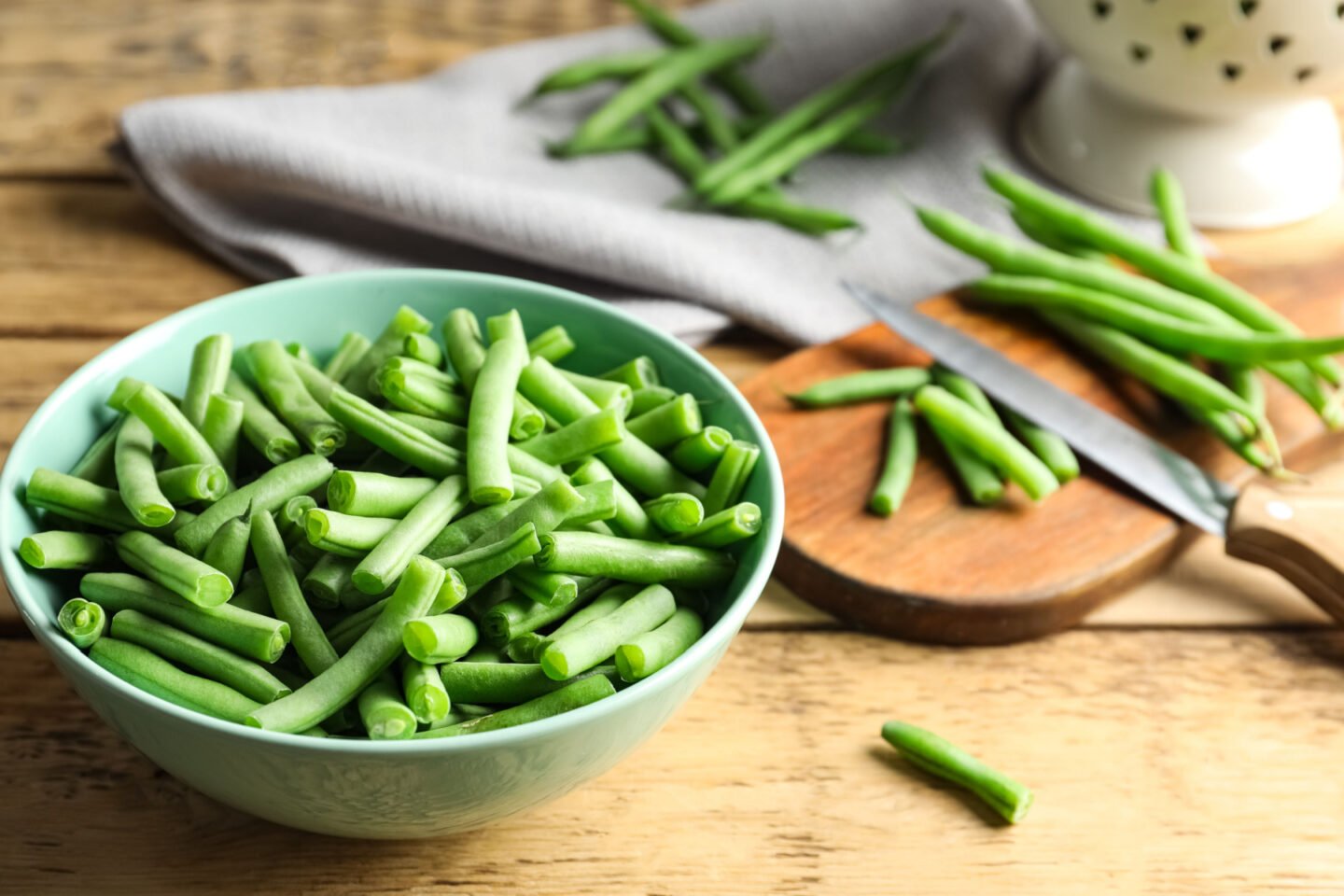
Also known as snap beans or string beans, green beans are a popular vegetable in many countries. Green beans are rich in dietary fiber, vitamins A, C, and K, and minerals such as iron, magnesium, and potassium.
Like broccoli, green beans are generally low in calories, making them a good choice for those looking to watch their weight.
When it comes to taste, green beans have a mild, somewhat nutty flavor. When cooked right, they are also crunchy and juicy, which makes them a great choice for salads and side dishes.
10. Asparagus
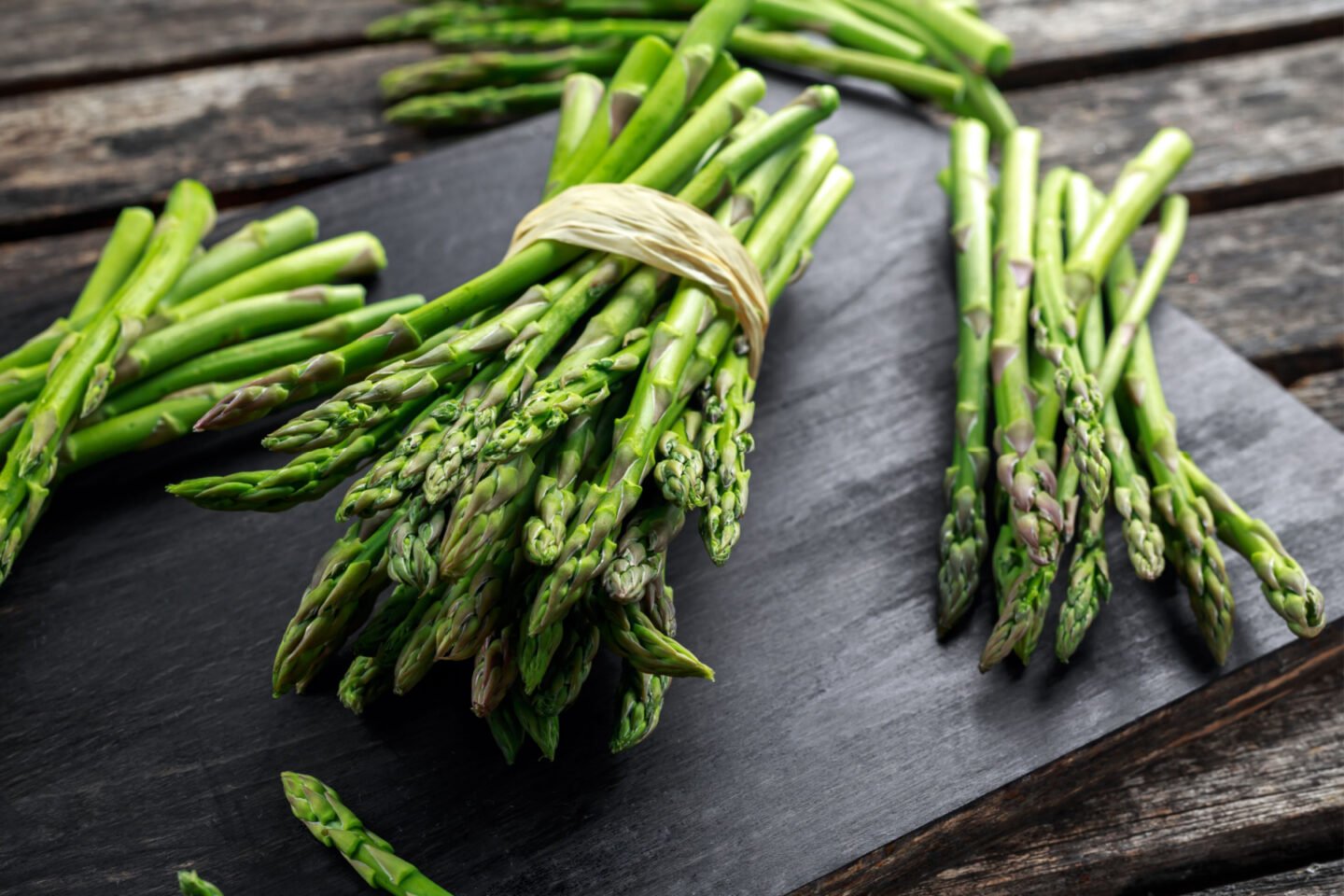
Asparagus has a unique sweet and grassy flavor and is a good source of vitamins C, A, E, K, and B6, as well as folate, iron, copper, calcium, protein, and fiber. It is a good substitute for broccoli, as it provides the mild taste and crunch that broccoli gives.
11. Baby Spinach Leaves
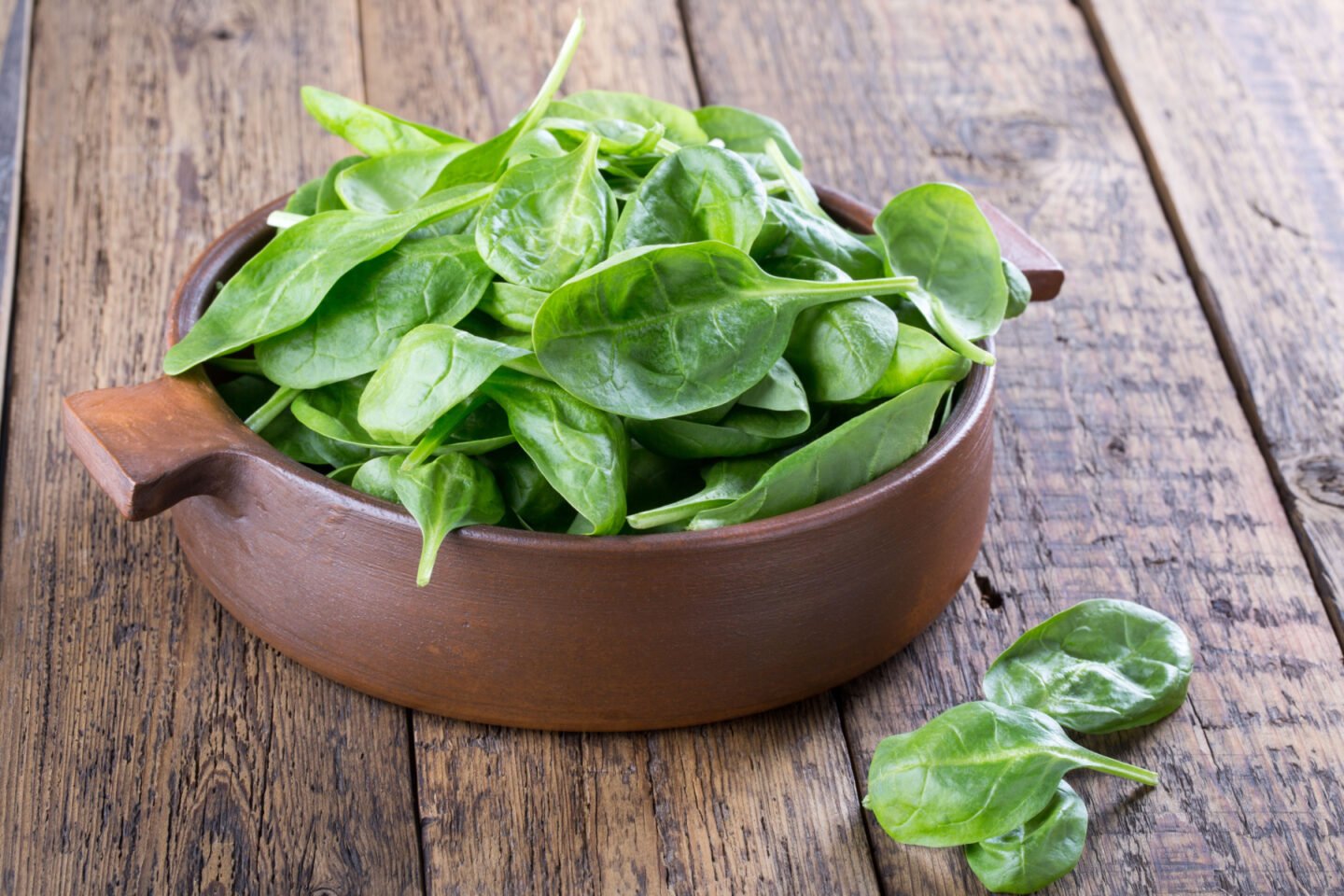
Even though baby spinach leaves taste less strong than broccoli, they still have important vitamins and minerals. They are an excellent source of iron, calcium, and vitamins A, C, and K.
Although baby spinach can be a good substitute for broccoli in certain recipes, there are better substitutes due to the difference in taste and texture.
12 & 13. Mustard Greens and Collard Greens
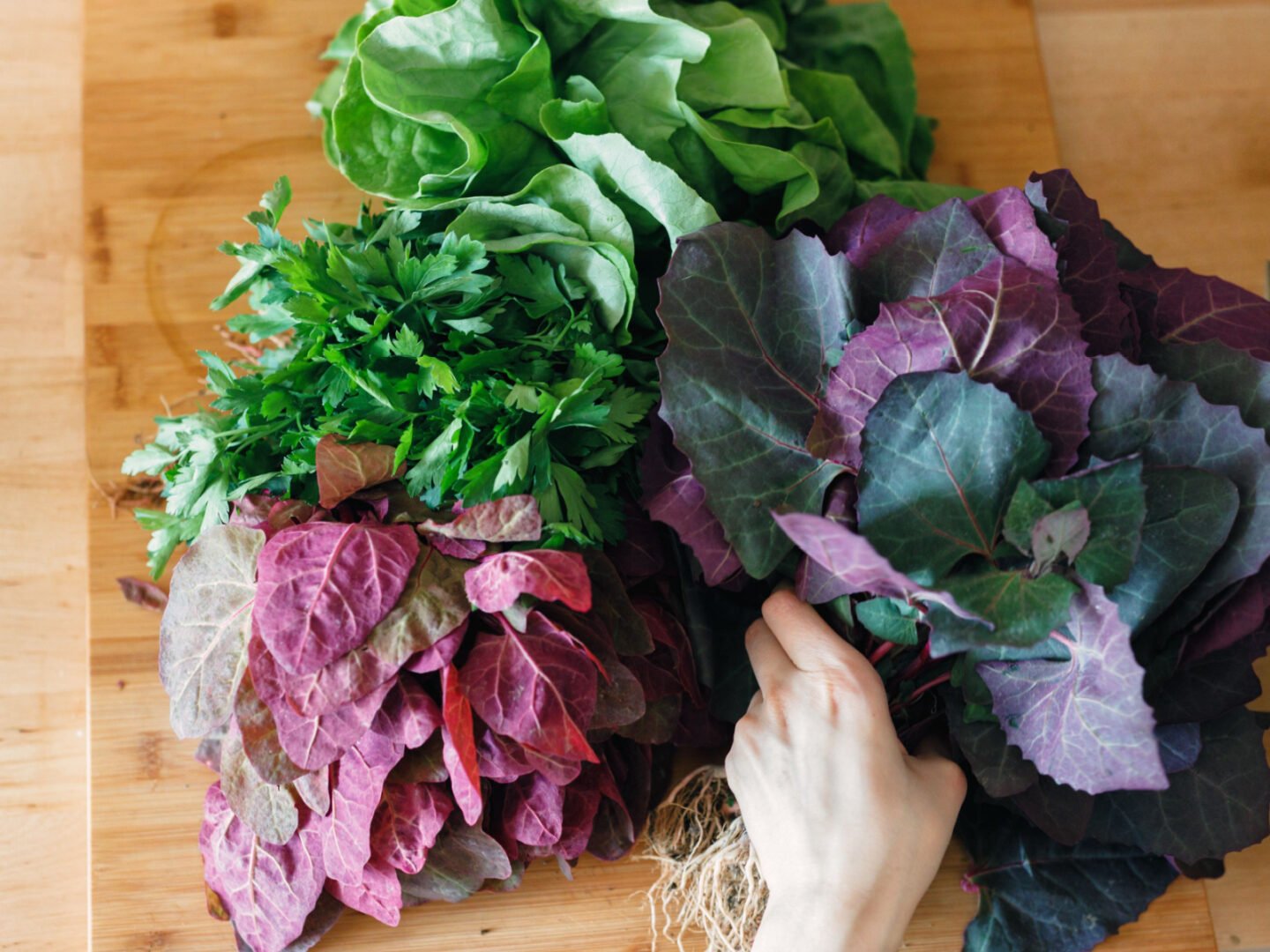
Both mustard greens and collard greens are healthy and full of vitamins A, C, and K, as well as minerals like calcium and iron.
However, mustard green has a slightly peppery flavor, while collard green is more mellow and bitter. Both are suitable substitutes for broccoli, providing similar nutritional benefits.
Summary
Let's take look at a quick rundown of the best substitutes for broccoli. Check out the notes for each substitute.
| Substitute | Notes |
|---|---|
| Cauliflower | A broccoli twin, cauliflower provides the crunch with a lighter taste. |
| Kale | Kale provides crispness and crunch while also being high in antioxidants. |
| Cabbage | A very versatile broccoli substitute that's easily accessible and affordable. |
| Broccolini | A broccoli hybrid that offers both nutrients and a delicate taste. |
| Gai Lan | Offers a more intense flavor than broccoli. |
| Brussels Sprouts | It offers a nutty taste when cooked and has a similar crunch as broccoli. |
| Turnip Greens | The best broccoli substitute for those who tolerate bitter tastes well. |
| Rapini (Broccoli Rabe) | Known for its bitter taste, broccoli rabe is a close relative but not a common substitute. |
| Green Beans | A broccoli substitute that goes well with any recipe. |
| Asparagus | It has the same mild taste as broccoli. |
| Baby Spinach Leaves | It does not work well over long cooking times. |
| Mustard Greens and Collard Greens | Not commonly used as substitutes, but they provide essential nutrients. |
Related Questions
Broccoli is one of the most nutrient-rich vegetables. While "better" depends on what nutrients you need, spinach and kale are among the healthiest vegetables.
You can make steamed broccoli and eat it with a dark soy sauce mix or sauté it with other vegetables. You can also make broccoli soup.
Yes, frozen broccoli is just as healthy as fresh broccoli.

Leave a Reply